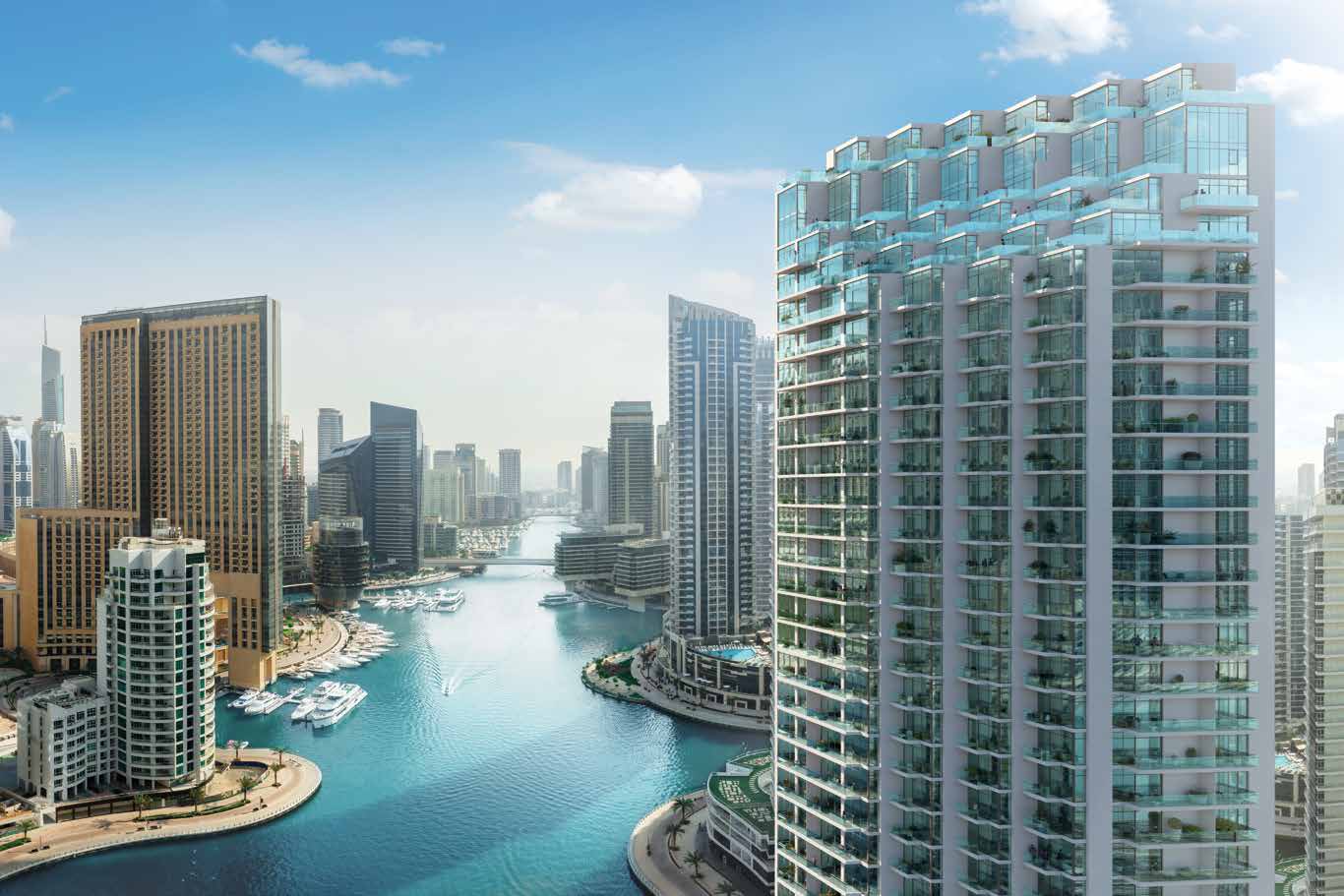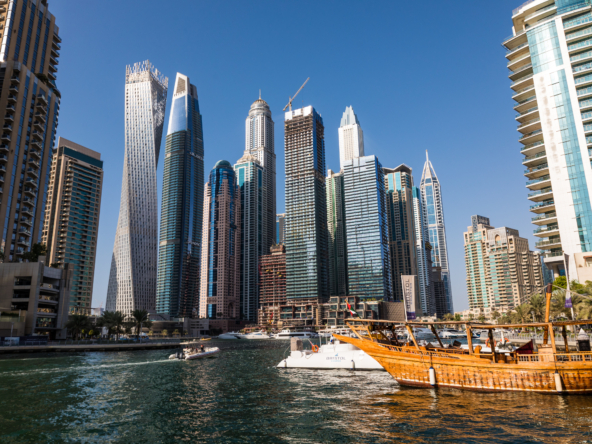Introduction
Dubai’s real estate market has become a global hub for property investments, and one segment that continues to attract attention is the off-plan property market. Off-plan properties, which are those still under construction or in the pre-construction phase, present both lucrative opportunities and inherent risks for new investors. With attractive pricing, flexible payment plans, and high potential returns, off-plan properties have become a go-to investment option for many. However, understanding the dynamics of this market is crucial for making informed decisions.
This blog aims to provide a comprehensive guide to the opportunities and risks associated with investing in Dubai’s off-plan properties, helping new investors navigate this exciting but complex market.
1. What Are Off-Plan Properties? An Overview
Off-plan properties refer to real estate that is sold by a developer before the construction is completed. In some cases, these properties may be purchased even before the groundbreaking stage.
Why Invest in Off-Plan Properties?
- Lower Purchase Price: One of the main draws of off-plan properties is the lower price compared to completed properties. Investors can secure a property at today’s prices, potentially benefiting from future market appreciation by the time construction is finished.
- Attractive Payment Plans: Developers often offer staggered or flexible payment plans, allowing investors to pay over time, reducing the need for immediate full financing.
- Customisations: Buying off-plan often gives investors the ability to request customizations to the property’s layout or finishes, allowing for more personalization.
Dubai’s property developers are particularly skilled at marketing off-plan projects, making them appealing by offering state-of-the-art amenities, strategic locations, and future-focused infrastructure.
2. Opportunities for Investors in Off-Plan Properties
1. Capital Appreciation
One of the most attractive opportunities in off-plan properties is the potential for capital appreciation. Since off-plan properties are often sold at lower prices than ready-built units, investors can benefit from the rising market prices during construction. By the time the property is completed, its value could increase significantly, especially in high-demand areas.
For example, in areas like Dubai Marina, Downtown Dubai, or Palm Jumeirah, off-plan properties tend to appreciate quickly due to their prime location, world-class amenities, and ongoing infrastructure development.
2. Payment Flexibility
Off-plan properties come with flexible payment plans, typically ranging from 1 to 5 years. Most developers ask for an initial down payment, usually around 10-20%, and then allow buyers to pay the rest in installments over the construction period. This reduces the financial burden on investors and makes it easier to manage cash flow while acquiring property.
Popular payment schemes include:
- Post-handover payment plans, where the investor pays a portion of the total price after the property is delivered.
- Milestone-based payments, where installments are linked to the completion of specific construction stages.
3. High Rental Yields
Dubai’s off-plan properties often offer high rental yields once completed, especially in soughtafter areas like Dubai Creek Harbour, Dubai Hills Estate, and Business Bay. Investors who plan to rent out their property can benefit from long-term income streams in a tax-free environment, which adds to the financial appeal.
4. Government Support and Investor-Friendly Policies
The Dubai government has actively encouraged real estate investments by offering investorfriendly regulations and streamlined processes. Escrow accounts, regulated by the Real Estate Regulatory Agency (RERA), ensure that developers use investor funds responsibly.
This regulatory framework reduces the risk of project cancellations and safeguards investor money.
Moreover, recent initiatives like Golden Visas for real estate investors and the relaxation of foreign ownership laws have further incentivized off-plan investments in Dubai.
3. Risks Associated with Off-Plan Investments
While the opportunities in off-plan properties are compelling, new investors must also be aware of the risks. Investing in properties that are not yet completed inherently carries uncertainties.
1. Delays in Project Completion
One of the most common risks in off-plan property investments is project delays. Construction timelines may be affected by a variety of factors, including financial difficulties faced by developers, labor shortages, or regulatory approvals. A delay in project delivery can affect rental income projections and the overall return on investment.
For example, during the 2008 financial crisis, several projects in Dubai were either delayed or canceled, causing significant financial losses to investors.
2. Market Fluctuations
The real estate market is inherently volatile, and there is always the risk of market fluctuations. If property prices fall before the project is completed, investors may find themselves in a negative equity situation, where the value of the property is lower than the purchase price. To mitigate this risk, investors should conduct thorough market research and invest in welllocated projects with strong demand potential.
3. Developer Default
Although rare, there is always the risk of a developer going bankrupt or failing to complete the project. Investors should carefully vet developers, ensuring they have a solid track record of delivering projects on time and to the promised quality. RERA’s regulations provide some protection, as developers are required to deposit investor funds into escrow accounts, but this does not eliminate the risk entirely.
4. Changes in Property Specifications
In some cases, the final property may differ from the initial plans presented at the time of purchase. Developers may change materials, designs, or even reduce the quality of finishes due to budget constraints or other factors. This can diminish the value of the investment or lead to dissatisfaction among buyers. Investors should carefully review the sale agreement and ensure that specifications are clearly defined and agreed upon to avoid unpleasant surprises.
4. Mitigating Risks: Key Factors to Consider
1. Research Developer Reputation
The success of an off-plan investment largely depends on the reliability of the developer. Investors should look into the developer’s previous projects, delivery timelines, and customer reviews. Some of the most trusted developers in Dubai include:
- Emaar Properties
- Damac Properties
- Nakheel
- Sobha Realty
These developers have a track record of delivering high-quality projects and adhering to construction timelines.
2. Invest in High-Demand Areas
Location plays a critical role in determining the success of an off-plan investment. Areas with high demand and infrastructure development are more likely to appreciate in value. Popular investment zones include:
- Dubai Hills Estate
- Bluewaters Island
- City Walk
- Jumeirah Beach Residence (JBR)
These locations are well-known for their luxury lifestyle offerings, proximity to key business districts, and tourist attractions.
3. Use Escrow Accounts for Protection
Under Dubai law, developers are required to open escrow accounts for off-plan projects. All payments made by investors are deposited into this account, ensuring that funds are only used for project construction. Before investing, ensure the project is registered with RERA and that an escrow account has been established.
4. Check for Completion Guarantees
Some developers provide completion guarantees, ensuring that the project will be delivered on time, or they will compensate buyers in case of delays. These guarantees provide additional protection for investors and are worth considering when evaluating a project.
5. Market Research and Timing
Timing your entry into the market is critical. Investors should stay informed about Dubai’s real estate trends, macroeconomic factors, and government policies that might affect property prices. Consulting with a real estate expert can help new investors make informed decisions about when and where to invest.
5. Post-Completion Opportunities for Off-Plan Properties
Once the off-plan property is completed, investors can explore various opportunities for maximizing returns. These include:
- Reselling for Profit: Investors can choose to sell the property after completion at a higher price, capitalizing on market appreciation.
- Renting Out: With Dubai’s high rental demand, especially in prime areas, investors canbenefit from attractive rental yields.
- Long-Term Capital Gains: Holding onto the property long-term may lead to significant capital gains, especially in Dubai’s fast-growing neighborhoods.
Conclusion: Is Off-Plan Investment Right for You?
Off-plan properties in Dubai present a unique opportunity for investors seeking high capital appreciation, flexible payment plans, and lucrative rental yields. However, as with any investment, there are risks involved, including construction delays, market fluctuations, and potential developer issues.
By carefully researching the market, choosing reputable developers, and investing in highdemand areas, investors can mitigate these risks and unlock the potential of Dubai’s off-plan property market. With the city’s ambitious growth plans, investor-friendly policies, and expanding infrastructure, Dubai remains a prime destination for off-plan investments, offering both opportunities and challenges for new investors.




